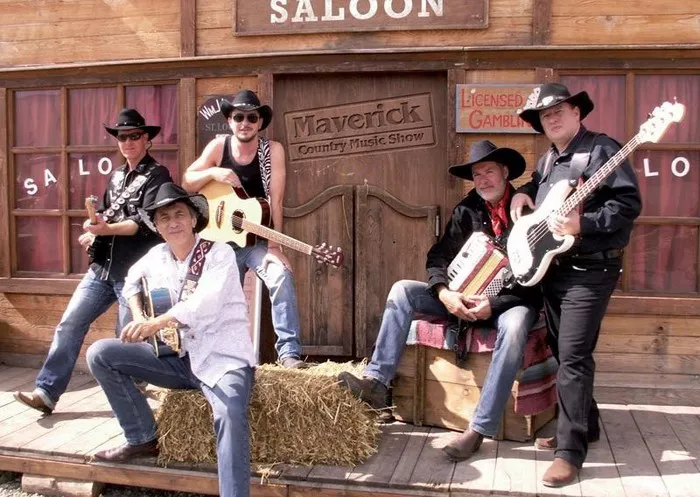Country music, a genre that traces its roots back to the early 20th century, has evolved into an iconic and cherished form of musical expression worldwide. Characterized by its distinctive melodies, heartfelt lyrics, and twangy vocals, country music has a unique ability to transport listeners to simpler times and evoke emotions like no other genre can. In this article, we will explore the defining elements of country music that have made it a beloved and enduring part of our cultural heritage.
1. Humble Beginnings: Folk Roots and Acoustic Sounds
Country music’s origins can be traced back to the rural American South, where it developed from a blend of folk music brought by immigrants and the musical traditions of African-American communities. The early country musicians, often self-taught and playing simple acoustic instruments like the guitar, banjo, and fiddle, were the storytellers of their time, conveying tales of love, loss, and life’s hardships through their heartfelt songs.
2. Heartfelt Storytelling: Lyrics that Connect
One of the most defining features of country music is its emphasis on storytelling. Country songs are like short stories set to music, touching on a wide range of emotions and experiences that resonate with audiences of all backgrounds. From heartwarming tales of love and family to heart-wrenching stories of heartbreak and struggle, country lyrics often capture the essence of the human condition, making them universally relatable.
3. Themes of Love and Loss: Honesty and Vulnerability
Country music is unafraid to confront life’s ups and downs, providing a safe space for artists to be honest and vulnerable in their music. Love and loss, in particular, are recurring themes in country songs. Whether it’s the joy of newfound love or the pain of heartbreak, country musicians channel their emotions into their music, forging a deep connection with their audience.
4. Country Instruments: From Acoustic to Modern
Over the years, country music has incorporated various instruments that have become synonymous with the genre. The steel guitar, with its distinctive sliding sound, adds a melancholic touch to many classic country songs. The banjo and fiddle, influenced by folk and bluegrass traditions, bring a lively and toe-tapping quality to the music. While traditional instruments maintain their charm, modern country music has embraced a wider range of sounds, blending in electric guitars and contemporary elements, catering to a broader audience.
5. Regional Influences: Subgenres and Diverse Styles
Country music’s rich history has given rise to numerous subgenres, each influenced by the unique characteristics of the regions where they originated. From the upbeat and energetic Western Swing of Texas to the soulful and bluesy Nashville Sound, the different styles of country music cater to diverse tastes while still maintaining the genre’s core values.
6. Country Legends: The Icons of the Genre
No discussion of country music would be complete without mentioning the legendary artists who shaped the genre. Pioneers like Hank Williams, Johnny Cash, and Patsy Cline not only defined the sound of their time but also left a lasting legacy, inspiring generations of musicians to come. Contemporary icons such as Dolly Parton, Willie Nelson, and Garth Brooks continue to carry the torch, bridging the gap between traditional and modern country music.
7. Community and Heritage: Country as a Lifestyle
Country music isn’t just a genre; it’s a way of life for many enthusiasts. From line dancing to attending music festivals, country music brings people together, fostering a sense of community and camaraderie. Fans often feel a deep connection to the values expressed in country songs, embracing the importance of family, love for the land, and the resilience to overcome life’s challenges.
8. Crossover Appeal: Country in the Mainstream
While country music has its distinct identity, it has also experienced periods of crossover success into the mainstream music scene. Collaborations between country artists and pop, rock, or hip-hop musicians have introduced country music to new audiences, broadening its impact and relevance across different cultures and generations.
9. Evolution and Modern Trends
As with any genre, country music continues to evolve. With each passing generation, new artists bring their unique perspectives and sounds, expanding the boundaries of the genre. The fusion of country with other styles like country-pop and country-rock has been met with both praise and criticism, sparking discussions about authenticity and the future direction of country music.
10. Country Music Around the World
Although born in the United States, country music has transcended borders and found devoted audiences worldwide. From Canada to Australia, from the United Kingdom to Scandinavia, country music enthusiasts can be found in all corners of the globe. This global embrace of country music speaks to its universal appeal and ability to touch the hearts of people from different cultures and backgrounds.
In conclusion, country music is a genre deeply rooted in tradition, storytelling, and heartfelt emotion. It captures the essence of the human experience, conveying tales of love, heartache, and the resilience of the human spirit. With its distinctive sound and timeless themes, country music has earned its place as a cherished and enduring form of musical expression, uniting people from all walks of life under the banner of heartfelt melodies and soulful storytelling. Whether through the twang of an acoustic guitar or the harmony of modern country-pop, the genre’s essence remains the same, reminding us of the power of music to heal, connect, and celebrate life’s journeys.

